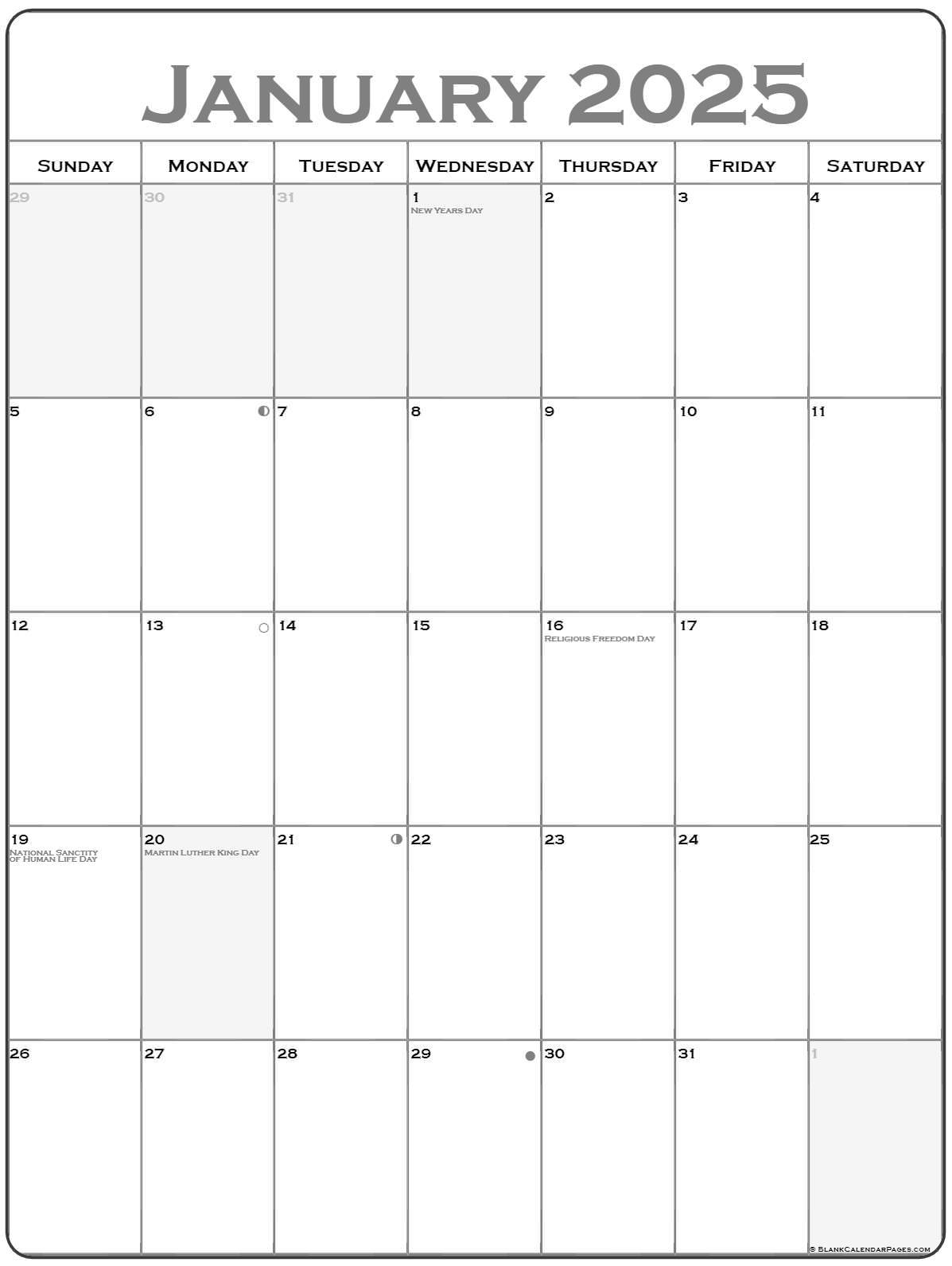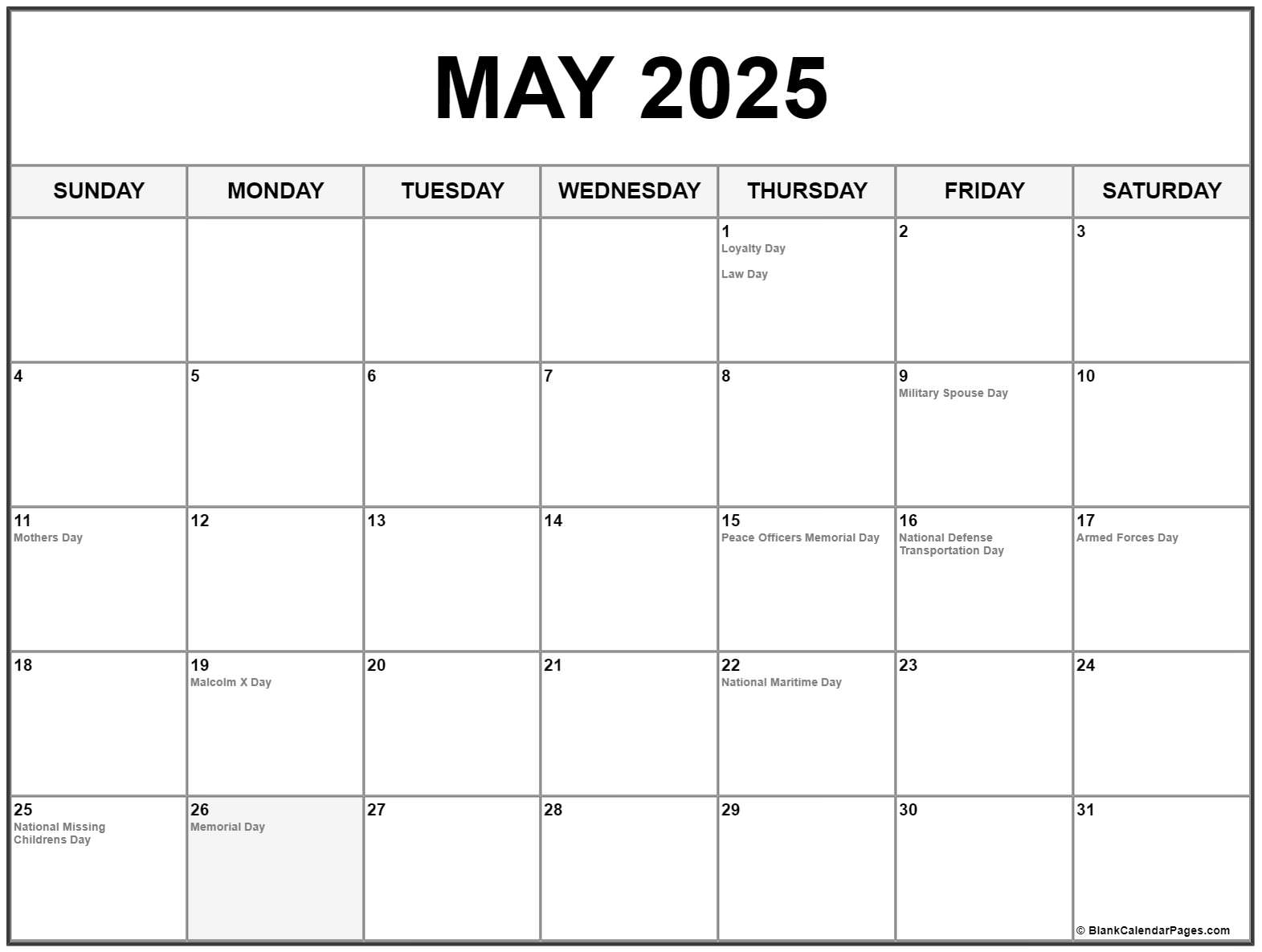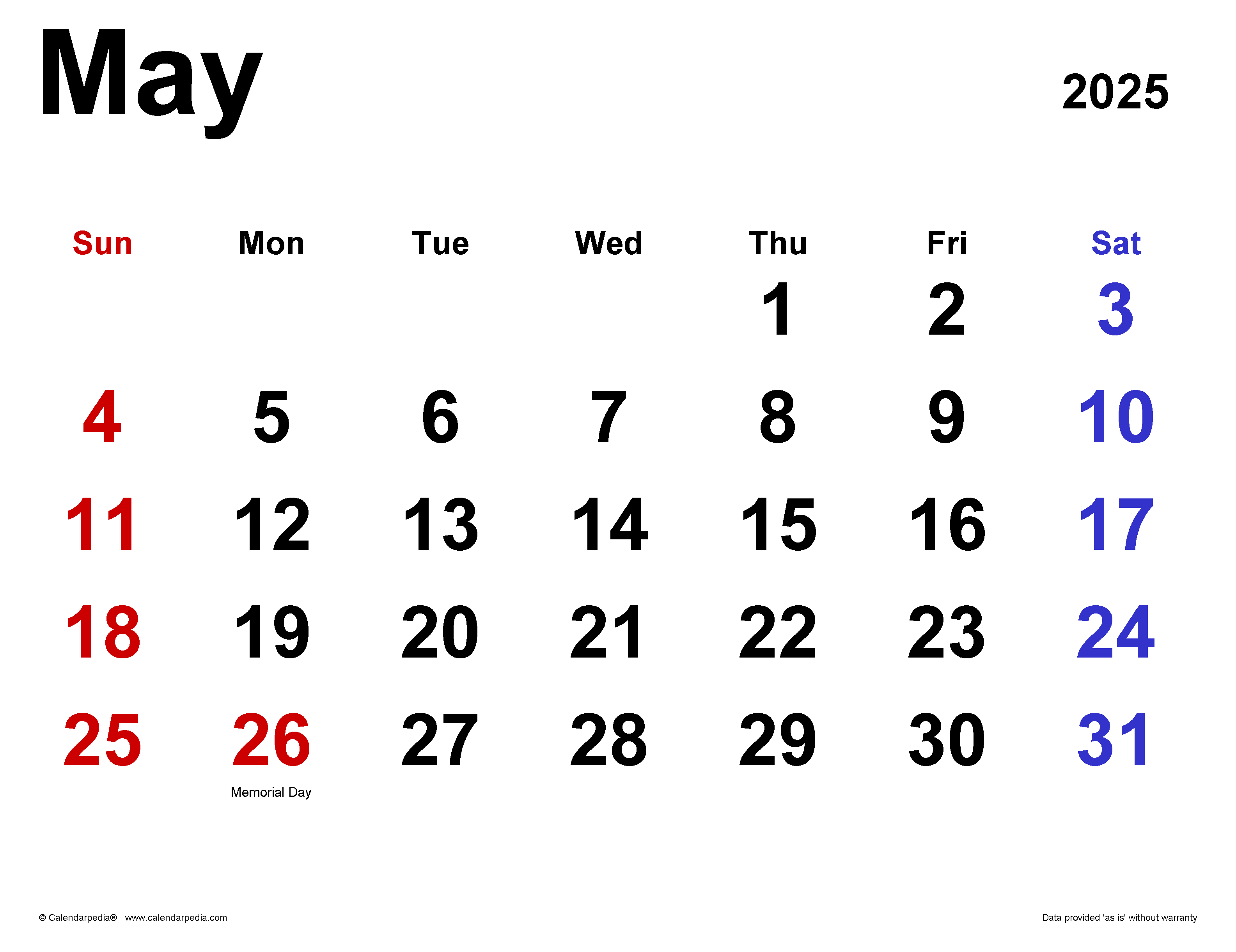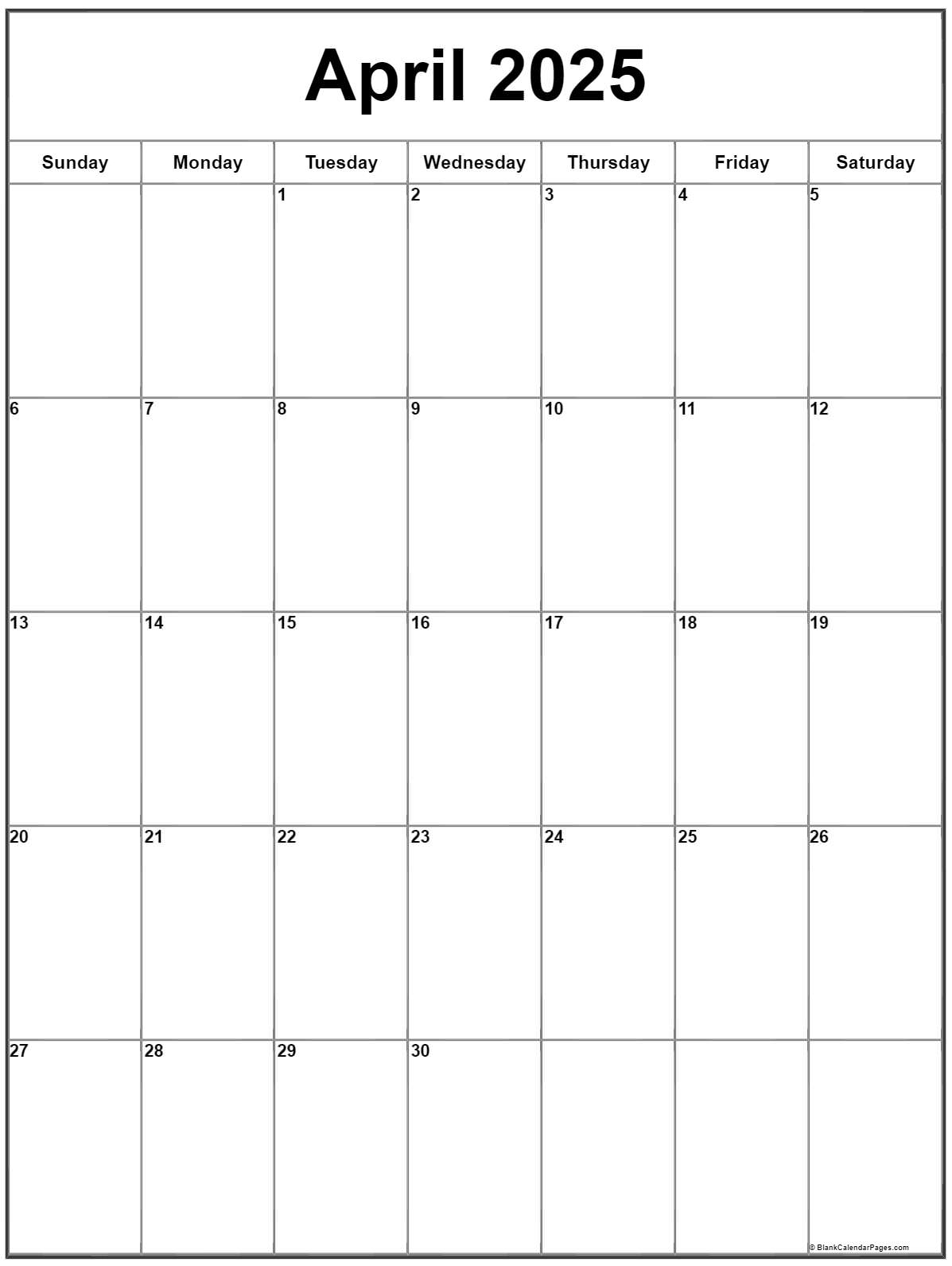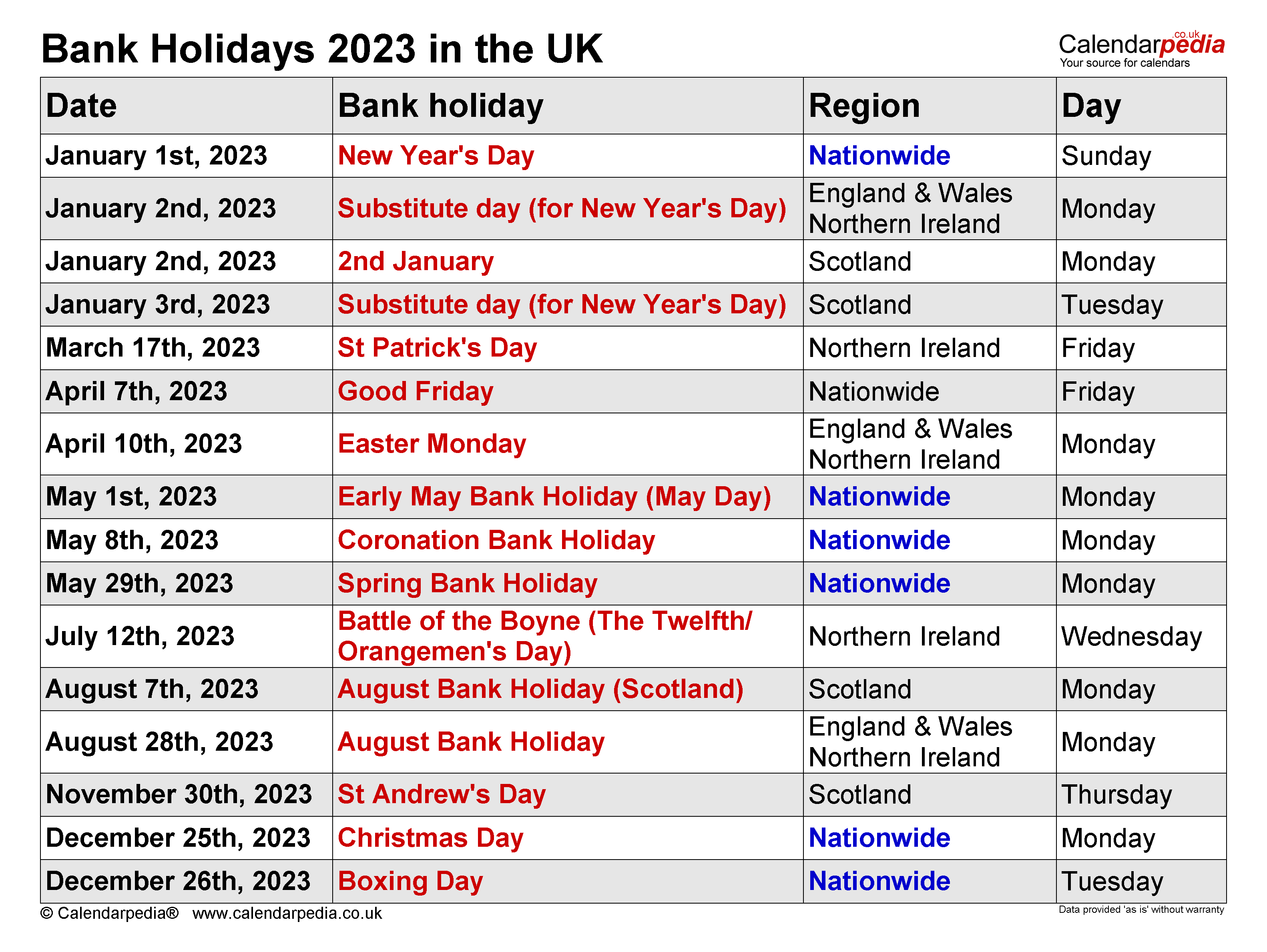May 2025 Calendar Why Is It Important
Decoding May 2025: Why a Simple Calendar Holds Unexpected Significance
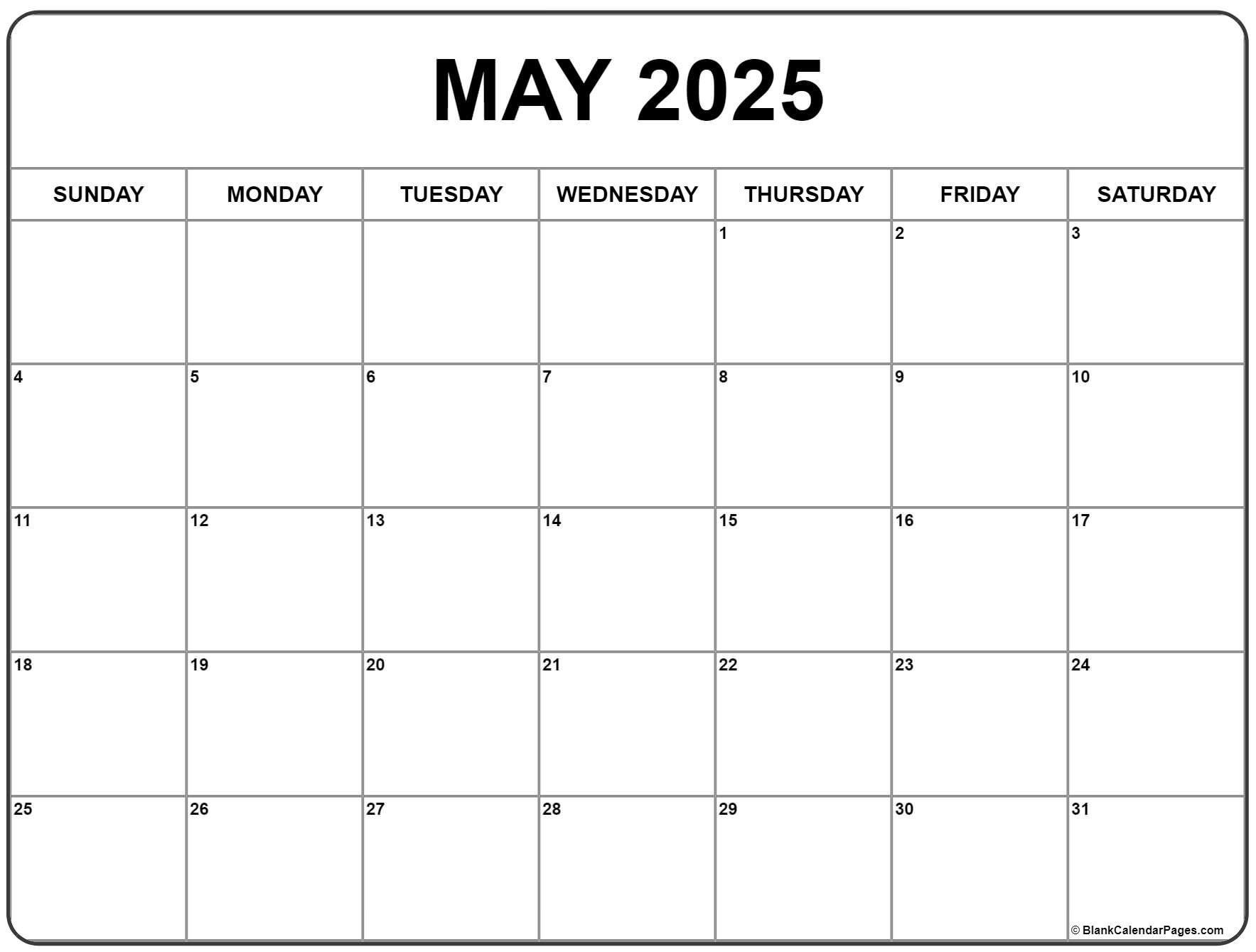
The seemingly mundane act of consulting a calendar often goes unnoticed in the whirlwind of daily life. Yet, within the grid of dates and days lies a powerful tool for organization, planning, and understanding the flow of time. While any given month’s calendar might seem insignificant on its own, focusing on a specific one, such as May 2025, allows us to explore its importance on multiple levels – from individual scheduling to broader societal implications. This article delves into the significance of the May 2025 calendar, exploring its practical applications and its subtle role in shaping our lives.
I. The Practical Importance of the May 2025 Calendar for Individuals:
For individuals, the May 2025 calendar serves as a foundational tool for managing their time and commitments. Its importance stems from its ability to:
-
Facilitate Planning and Organization: The structured layout of the calendar allows individuals to visualize their month ahead. This visual representation is crucial for scheduling appointments, deadlines, meetings, personal events (birthdays, anniversaries), and vacations. By meticulously noting down commitments, individuals can avoid conflicts, ensure timely completion of tasks, and optimize their time effectively. For students, it’s vital for managing coursework, exams, and extracurricular activities. Professionals rely on it for project management, client meetings, and travel arrangements. Even personal activities like gym sessions or hobby time can be strategically placed within the calendar framework.
-
Improve Time Management: A well-maintained May 2025 calendar promotes proactive time management. Instead of reacting to events as they arise, individuals can anticipate and prepare for them. This proactive approach reduces stress and improves efficiency. By identifying potential bottlenecks or conflicts early on, individuals can make adjustments and avoid last-minute rushes. This is particularly important for managing complex projects or juggling multiple responsibilities.
-
Enhance Productivity and Goal Setting: The calendar can be used as a powerful tool for goal setting and tracking progress. Individuals can break down large goals into smaller, manageable tasks, assigning specific deadlines to each task within the May 2025 calendar. This structured approach enhances accountability and provides a clear roadmap for achieving objectives. Regularly reviewing the calendar and marking progress fosters a sense of accomplishment and motivation.
-
Reduce Stress and Anxiety: The act of planning and organizing using a calendar can significantly reduce stress and anxiety. Knowing that commitments are clearly laid out and accounted for provides a sense of control and reduces the likelihood of overlooking important deadlines or appointments. This sense of control contributes to a more relaxed and focused approach to daily life.
-
Improve Collaboration and Communication: Shared calendars are increasingly important in collaborative environments. Teams can utilize shared May 2025 calendars to coordinate meetings, deadlines, and project milestones. This improves communication, reduces misunderstandings, and ensures everyone is on the same page.
II. The Broader Societal Implications of the May 2025 Calendar:
Beyond individual use, the May 2025 calendar plays a subtle but crucial role in shaping societal functions:
-
Business and Commerce: Businesses rely heavily on calendars for scheduling production, marketing campaigns, financial reporting, and logistical operations. The May 2025 calendar will be instrumental in planning sales targets, managing inventory, coordinating supply chains, and scheduling conferences or trade shows. Accurate scheduling is essential for maintaining operational efficiency and profitability.
-
Education: Educational institutions utilize calendars to plan academic schedules, exam periods, registration deadlines, and extracurricular activities. The May 2025 calendar will be critical in organizing the final stages of the academic year, ensuring smooth transitions between semesters or school years, and facilitating important events like graduation ceremonies.
-
Government and Public Services: Government agencies use calendars to schedule meetings, allocate resources, manage public projects, and coordinate emergency response efforts. The May 2025 calendar will be important for planning public events, managing budgets, and ensuring the smooth delivery of public services. Accurate scheduling is crucial for maintaining public trust and ensuring the efficient functioning of government.
-
Healthcare: Healthcare systems rely on calendars for scheduling appointments, managing patient records, coordinating medical procedures, and allocating staff resources. The May 2025 calendar will be crucial for ensuring timely access to healthcare services and optimizing the use of medical resources.
-
Cultural and Social Events: Many cultural and social events are planned well in advance, often using calendars to determine optimal dates and avoid conflicts with other events. The May 2025 calendar will influence the scheduling of festivals, concerts, exhibitions, and other community gatherings.
III. The Significance of Specific Dates within May 2025:
While the entire month holds importance, certain dates within May 2025 might hold specific significance depending on individual circumstances or cultural contexts. For example:
-
Personal Anniversaries and Birthdays: Individuals will mark personal anniversaries and birthdays falling in May 2025, making those specific dates particularly important in their personal calendars.
-
Religious or Cultural Holidays: Depending on the region and cultural background, specific dates in May 2025 might coincide with religious or cultural holidays, adding another layer of significance to the calendar.
-
National or International Events: Specific dates in May 2025 might coincide with nationally or internationally recognized events, such as conferences, summits, or commemorative days, influencing scheduling and potentially impacting various sectors.
IV. Technological Advancements and the May 2025 Calendar:
The digital age has revolutionized calendar usage. Digital calendars, integrated into smartphones, computers, and collaborative platforms, have enhanced efficiency and accessibility. These digital tools allow for real-time updates, reminders, and seamless sharing among individuals and teams. The May 2025 calendar, therefore, will be experienced differently across various digital platforms, emphasizing the interconnectedness of individual schedules within a broader societal context.
V. Conclusion:
The May 2025 calendar, while seemingly a simple grid of dates, is a powerful tool with far-reaching implications. Its importance extends beyond individual time management, influencing business operations, educational planning, government functions, and the coordination of various societal events. By understanding its practical applications and its subtle role in shaping our lives, we can appreciate the significance of this seemingly ordinary tool and leverage its potential to enhance productivity, reduce stress, and optimize our engagement with the world around us. The seemingly insignificant act of consulting the May 2025 calendar becomes a crucial step in navigating the complexities of modern life, highlighting the interconnectedness of individual actions and their collective impact on society.
